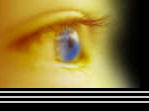Causes and Risk Factors
Scientists don’t really know what causes bipolar disorder, sometimes called manic depression. They
do think that family history plays a role. Most people with bipolar disorder have a relative with the same condition or with some other mood disorder.
But family history alone does not cause someone to have bipolar disorder. We don’t yet know what those
other things are.
This is what we DO know about bipolar disorder:
- Bipolar disorder most often starts in teenagers and young adults. But it also can occur in children and older adults.
- Bipolar disorder equally affects people of all races and backgrounds.
- Special chemicals in the brain may be involved. If the levels of these chemicals are out of balance, it may be harder
for brain cells to work as they should.
- Bipolar disorder also could be connected to hormone levels. Hormones are chemicals in the body that do certain things.
Experts have noticed a link between thyroid hormone levels and bipolar disorder.
- Also, certain parts of the brain may have a different size or shape in people with bipolar disorder. The changes could
be a cause or symptom of the illness.
- In some cases, other illnesses may play a role in bipolar disorder.
You can watch a short movie to learn more about bipolar disorder. Please click here to see the movie.
The following questions may help you start a conversation with your healthcare provider about symptoms you
may be experiencing. He or she will have additional questions about your symptoms and medical history to help make an accurate
diagnosis.
- Do you experience mood swings?
- Has there ever been a period of time when thoughts raced through your mind or you couldn't slow your mind down?
- Has there ever been a period of time when you got much less sleep than usual and found you didn't really miss it?
- Do any of your close relatives suffer from depression or bipolar illness (manic-depression)?
Talk to your healthcare provider and explain that you still feel depressed. Be sure to ask if you could
have bipolar disorder. He or she may reconsider your treatment options.

